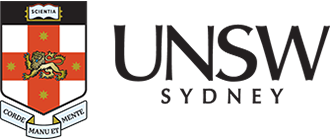
An analysis of the latest data from the National Centre for Vocational Education Research (NCVER) reveals that government funding for skills training continues to favour public TAFE colleges over independent Registered Training Organisations (RTOs). According to the Independent Tertiary Education Council Australia (ITECA), the peak body representing independent skills training, higher education, and international education providers, this funding bias limits student choice and access to quality, industry-aligned training options.
According to the NCVER data, the total expenditure by the Australian, state and territory governments on skills training in 2023 was $6,546.4 million, reflecting a $600 million increase from 2022 and a significant $1.18 billion increase since 2020, growth of 22%. Despite this, only 22.3% of this funding was allocated to support students studying with quality independent RTOs.
In contrast, TAFE institutions received 68.6% of the total VET funding, some $4,491.9 million, with the total funding for all public providers surpassing TAFE’s allocation alone by an additional $350 million.
“This funding imbalance is concerning, especially as students increasingly seek flexible, industry-aligned training options offered by independent RTOs,” said Troy Williams, ITECA Chief Executive.
ITECA says that student choice should be at the centre of skills funding policy.
“Government’s must prioritise student choice in the skills training system and particularly when it comes to student and course funding, and in doing so empower individuals to make informed decisions to study with the training provider that’s best able to help them achieve their life and career goals,” Mr Williams said.
Jurisdictional data highlights significant disparities. South Australia directs 35.9% of its skills expenditure to support students at quality independent RTOs – the highest proportion across all jurisdictions, followed by Queensland at 30.8% and Victoria at 26%. In other states and territories, however, the proportion of expenditure on skills training directed to support students at quality independent RTOs rests in the mid-teens.
“ITECA is calling for Australian, state, and territory governments to adopt a student-centered funding model. This approach would ensure students have access to a subsidised place at a quality independent RTO of their choice, supporting greater diversity and choice within the skills training sector,” Mr Williams said.
As outlined in the ITECA Federal Election Manifesto, a high-performing skills training system must be underpinned by diversity and choice. Supporting students’ right to choose their provider is critical to building an inclusive, agile, and future-ready workforce. Importantly, the NCVER data also shows that taxpayers can have confidence when students choose to study with independent RTOs.
“The NCVER data shows that private RTOs have higher qualification completion rates and achieve better outcomes on most metrics of student satisfaction when compared to public TAFE colleges,” Mr Williams said.
Ends.
Key Facts:
The total expenditure by the Australian, state and territory governments on skills training in 2023 was $6,546.4 million, reflecting a $600 million increase from 2022 and a significant $1.18 billion increase since 2020.
Despite this, only 22.3% of this funding was allocated to support students studying with quality independent RTOs.
The NCVER data shows that private RTOs have higher qualification completion rates and achieve better outcomes on most metrics of student satisfaction when compared to public TAFE colleges
About us:
ITECA Introduction: Formed in 1992, the Independent Tertiary Education Council Australia (ITECA) is the peak body representing independent Registered Training Organisations (RTOs) and higher education providers. Committed to quality education and student choice, ITECA drives policy reform, supports member growth, and ensures independent providers remain central to Australia's skills training and higher education landscape.
Contact details:
Troy Williams, ITECA Chief Executive
e: [email protected]
m: 0400 599 934


